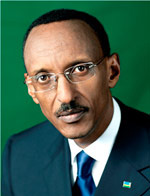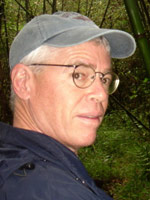About Rwanda
A small, densly populated country about the size of Maryland or Vermont, Rwanda has a distinctly beautiful, lush landscape graced with grasslands, small farms on rolling hillsides, rugged mountains, lakes, and volcanoes. The country is mostly just south of the equator, but its high altitude helps it avoid temperature extremes.
Despite its great natural beauty, Rwanda was the site of Africa’s largest genocide in modern times. Between April 7 and July 16, 1994, in the space of only 100 days, Hutus rampaged through the country and slaughtered an estimated 800,000 Tutsis and their moderate Hutu sympathizers. This followed decades, through the mid-20th century, when Tutsis were the aggressors.
Although reports of the 1994 genocide were horrific, neither the UN, the United States, nor any other country came to the Tutsis’ assistance, while France provided not only weapons, but also troops on the Hutu side. The scale and speed of the mass slaughter left the country and its people deeply scarred, and it was not until May 2003 that a constitution, with a balance of power shared between the Hutus and Tutsis, became law.
There are many lessons to be learned from a visit to this beautiful East African country, which spawns both the mighty Nile and Congo rivers. Rwanda is led by a very smart and determined president who stopped the slaughter and brought peace, albeit not always with everyone's complete approval.
Like many of his countrymen, President Paul Kagame is soft-spoken and reserved. He does not always champion freedom of speech as much as Americans have become accustomed. People are sometimes prosecuted, for instance, for violating strict rules governing dissemination of genocide philosophy. He is all about justice, jobs, education, and building the economy, however, and has instituted major programs to ensure stability for foreign investors and to help them succeed in this small country where average wages are still only a few hundred dollars a year. Kagame seems to be very highly regarded by a large majority of English-speaking people who have actually lived in Rwanda and seen the remarkable progress being made there.
In January 2012, Joyce and Bill Cummings, co-founders of Cummings Foundation, and several friends visited Rwanda to learn about humanitarian efforts to heal the country and provide sorely needed services to those impacted by the genocide and its aftermath. Read Joyce’s 2012 contemporaneous travel journal. That visit led to substantial Cummings commitments to the Partners in Health hospitals in Rwinkwavu and Butaro, and to a probable long-term involvement there. The Cummings' returned to Rwanda in 2013 with Dr. and Mrs. Arlan and Alice Fuller, also of Winchester, MA.
An “Up and Coming” Center of Commerce
The government of President Paul Kagame says it is no longer looking for charity. Instead, it has stabilized the country to such a degree that any business looking to establish itself in Africa should strongly consider Rwanda as an ideal beachhead. With its second international airport now actively in planning and will soon be the center of East African commerce.
One of Africa’s smaller but most densely populated landlocked nations, Rwanda has demonstrated spectacular progress toward recovering from its horrific 100–day genocide, which occurred April through July of 1994. Under the extraordinary leadership of President Kagame, the government has worked diligently and strategically to rebuild the nation and unify its people. Integral to achieving these goals is the self-sufficiency that comes with a thriving economy.
Investment Opportunities
The Rwanda Development Board (RDB), created in 2008, employs a “one-stop” service model to facilitate new investment and fast track development projects. Today, Rwanda is recognized as one of the easiest countries in Africa in which to do business. John Gara, CEO of the RDB, noted that this recognition “is a result of extensive efforts by government to streamline business procedures, create a conducive legal framework, reduce bureaucracy and improve service delivery, in order to promote both domestic and foreign investment.”
A new, and much simplified, business registration process was introduced in 2006 to encourage entrepreneurship. As a result, the average amount of time it took to start a business dropped from 18 days to nearly instantaneous, and the number of new enterprises skyrocketed. Compared with an average of 700 new businesses annually prior to 2006, Rwanda reportedly registered 18,447 new businesses in 2010. The fee to register a new business in Rwanda is 15,000Rwf, but do it online, and it is free!
By creating a business-friendly environment for both foreign companies and its own citizens, Rwanda notes that it is growing its private sector and its wealth at a surprising rate. Neither Cummings Foundation nor the Cummings family will become involved in any for-profit business in Rwanda. Bill Cummings has publicly stated, however, that if he were considering opening a business outside of Massachusetts, then Rwanda might be the first place he would consider.
In October 2014, Cummings Foundation committed a major investment in medical education in Africa, to be known as University of Global Health Equity. The strictly graduate-level center could become known as the Pan African School of Health Services, and would confer masters and doctoral degrees in Medicine, Veterinary Medicine, and Dental Medicine.
A Benevolent Dictator??
January 2014

In a well-informed, 54-page report, Richard Johnson, who reportedly served 23 years as a Foreign Service Officer with the U.S. Department of State, goes into great detail rebutting perennial charges leveled by Human Rights Watch (HRW) against President Kagame. Given the significant influence HRW has on international human rights discourse, Cummings Foundation offered to post Mr. Johnson’s thorough documentation of the “other side” of the Kagame story.
Rwanda is approaching the 20th anniversary of its devastating genocide, which will be marked in April 2014. Having first visited there in January 2012, Joyce and Bill Cummings were impressed with the significant progress they witnessed upon their subsequent trip in August 2013. Not atypical, a Rwandan student at Agahozo-Shalom Youth Village credits his country’s rapid development to the fact that he and his peers are “the ‘sacrificial generation,’ who skipped the grieving in order to start rebuilding.”
Returning to Rwanda in August 2013, the Cummings found Rwanda still taking remarkable steps to become "the Switzerland of Africa." To all appearances, its graft-free, pro-business, progressive culture is taking a strong hold, as the country begins to surge forward. Rwandans are hard working and attentive, and the Kagame regime seems to be performing at a very high level.
Wherever Joyce and Bill traveled around the country, on both of their visits, they found that all the Rwandans they met very much wanted the same thing – peace. These people, who have lived through such violence and anguish, are prepared to move forward as a united nation, not wanting Rwanda to continue to be known as “the country that had that genocide.”
The Travesty of Human Rights Watch on Rwanda
by Richard Johnson

"I’m a retired American diplomat. My professional experience includes the genocide in Bosnia, and my personal experience includes living in Rwanda in 2008–2010 as the spouse of another U.S. diplomat. My purpose here is not to defend the Rwandan government, which is accountable first and foremost to its own people as well as to a variety of outside institutions. My purpose is to expose and perhaps alter the conduct of Human Rights Watch.
“With substantial funding and a mission statement whose nobility matches that of any established religion, HRW has enormous influence on Western media and foreign policy makers, particularly with regard to countries like Rwanda which are outside the core areas of Western interest and familiarity. But HRW’s decision-making process is not transparent, the aura of sanctity around its professed mission deters public scrutiny of its policies and practices, and the degree of accountability of HRW to anyone is quite unclear. This situation of unchecked power is one where things can go seriously wrong. With regard to Rwanda, they have.”
On October 7, 2013, Mr. Johnson wrote in an email to Cummings Foundation:
“My March 2013 paper ‘The Travesty of HRW on Rwanda’ was my own initiative, for which I neither sought nor received any funding. My determination to research, write and disseminate the paper stemmed from my alarm and dismay in 2010, while I was living in Kigali, when first HRW and then the U.S. Government came out in support of the attempt of Victoire Ingabire and her RDR/FDU political party to reenter Rwandan politics — even though this party has direct and intimate ties to the perpetrators of the 1994 genocide.
“I continue to hope that my paper will make a difference. The paper has been widely read. There have been 13,000 visits thus far to its website from all over the world, the paper has been featured in the media in Rwanda and other parts of Africa, and I have received warm encouragement from a number of Rwanda experts whom I respect.”
Bugesera International Airport
In a country the size of Maryland, most airports are international by default. The largest of Rwanda’s international airports, Kigali International Airport, is operating far beyond its capacity, handling a projected 600,000 passengers in 2013 in a facility that was handling only 280,000 just five years ago. A planned expansion will increase passenger capacity, but is only a stopgap measure until a new airport can be built.
The brand new Bugesera International Airport has been in the works, off and on, for decades. The current plan calls for an “ultramodern” airport approximately 24 km south of capital city Kigali, with state-of-the-art facilities that can accommodate large aircraft such as Boeing 777s and Airbus A380s.
The new airport is expected to handle up to 3 million passengers per year by 2030, with 15,500 tons of cargo being moved annually. According to The African Aviation Tribune, the airport will include many amenities, including hotels and conference facilities, and there are plans to establish a free trade zone in the area.
The Rwandan government’s intentions are to reduce transportation costs for businesses and individuals, as well as attract more international travelers for sightseeing tourism and “MICE” visits – Meetings, Incentives, Conferencing, and Exhibitions. As reported in The New Times Rwanda, Dr. Richard Masozera, director of the Rwanda Civil Aviation Authority, suggested that this airport could bring in medical tourism as well. Officials hope that with the addition of Bugesera International, this centrally located country will become an air traffic hub in central East Africa.
Plans for the Bugesera airport might be augmented by a proposed railway between Kigali and the port city of Dar es Salaam on the coast of Tanzania. Such a railway line could further boost Rwandan exports as well as bring in tourists from other East African nations.
Bugesera International Airport is designed to aid Rwanda’s aspiration to become a middle-income country (defined as about $900 USD per capita yearly, up from less than $400 in 2012). As a modern airport and easy access point into the country, Bugesera is expected to draw more businesses and services to the airport area, driving growth with an influx of foreign patronage.
China has positioned itself in recent years as a major investor in the developing world, with The Economist reporting in November 2013 that its trade with Africa was worth about $200 billion USD a year. Trade with Rwanda alone is approaching $160 million USD per year, while Chinese financial support of road construction, energy, water supply, and digital broadcasting projects have contributed to Rwanda’s economic development (Rwanda Ministry of Infrastructure, mininfra.gov.rw).
A state-owned but privately run Chinese company, China State Construction Engineering Corporation, has been awarded the contract to build the $650 million Bugesera airport. This will reportedly be the largest investment in Rwanda’s history.